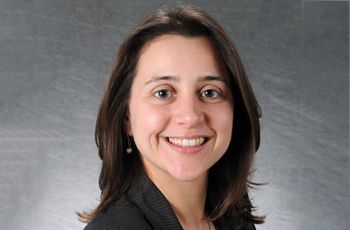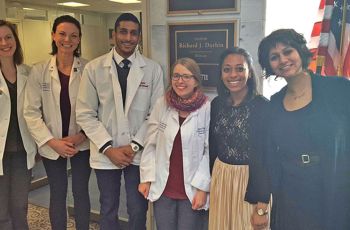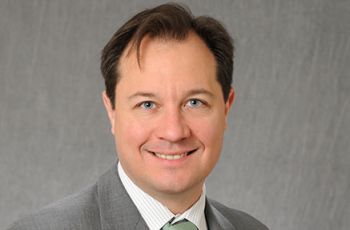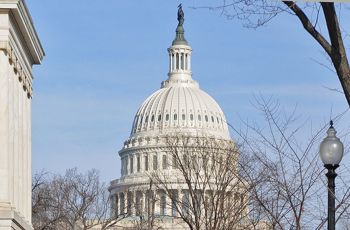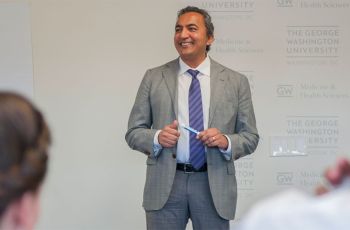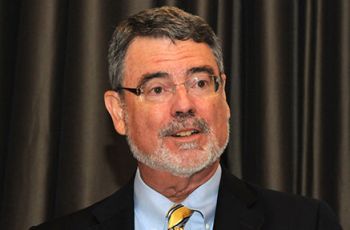Health Care System
Standing on the stage in GW's Jack Morton Auditorium on Feb. 7, Senators Bernie Sanders (D-Vt.) and Ted Cruz (R-Texas) debated the state of the U.S. health care system — with Cruz calling for total repeal of the Affordable Care Act, and Sanders making his case for a single-payer health system.
Mandi Pratt-Chapman, Ph.D., associate center director for patient-centered care and health equity at the GW Cancer Center, wrote an article in Conquer Magazine about the consequences that repealing the Affordable Care Act would have on cancer patients.
As part of the #ProtectOurPatients campaign, students walked to Capitol Hill to deliver a petition asking Congress not to repeal the health care law.
GW alumnus Adam P. Buckley, M.D. ’96, presented on the innovative changes he’s made to the University of Vermont Health Network’s electronic medical records system at the 8th Annual Allan B. Weingold Lecture.
GW researchers published a Health Affairs study finding that the expansion of Medicaid insurance coverage in the Patient Protection and Affordable Care Act did not increase hospital emergency department visits, as was widely predicted by policymakers and researchers.
Emergency medicine residents visited Capitol Hill to hear panels on the Affordable Care Act, budget forecasting for legislation, and prescription opioid misuse.
The George Washington University’s close proximity to Capitol Hill provides fertile ground for growing relationships.
The GW Office for Clinical Practice Innovation launched a podcast series to generate conversation about more efficient, cost-effective health care delivery.
Katherine Chretien, M.D., associate professor of medicine at the George Washington University School of Medicine and Health Sciences, published an editorial about the Department of Veterans Affairs and how the recent bad press may be overshadowing the great work taking place at the VA everyday.
Fitzhugh Mullan, M.D., professor of pediatrics and health policy, was quoted in the Geneva Patch (Geneva, Ill.) article on contributors to the doctor shortage, including a shortfall of residencies.

